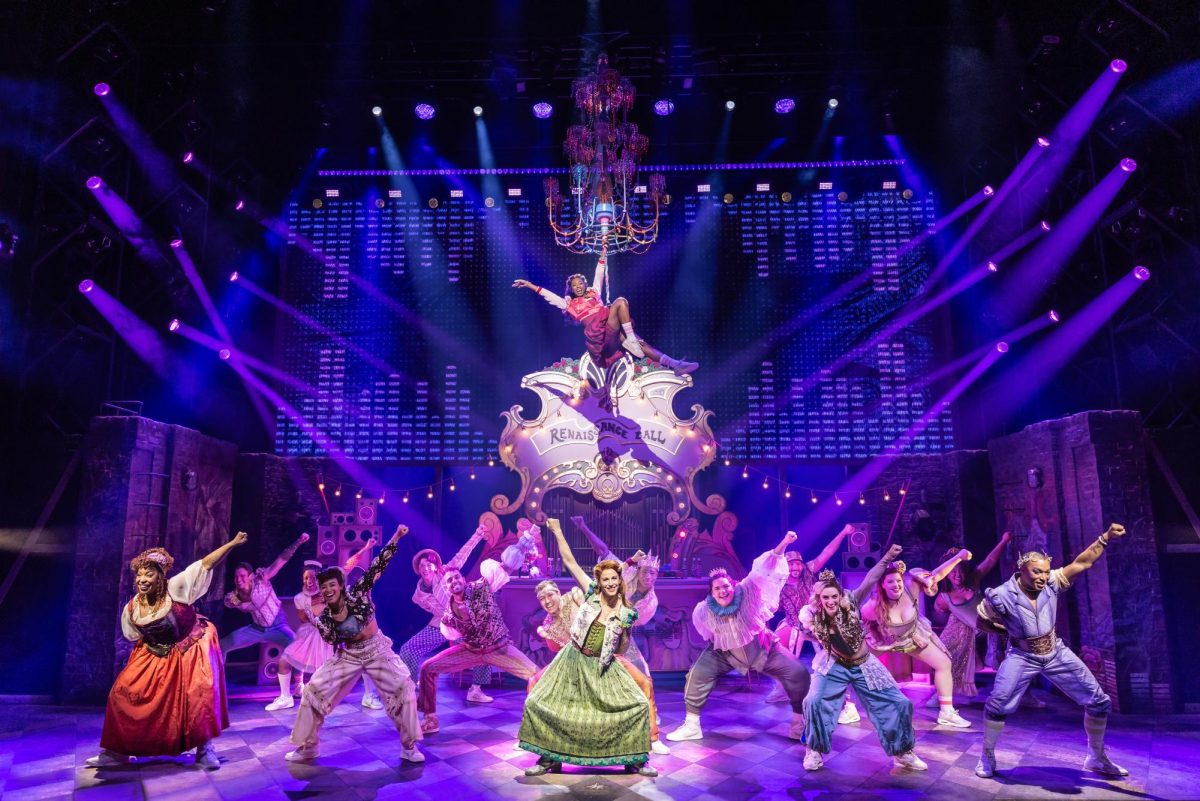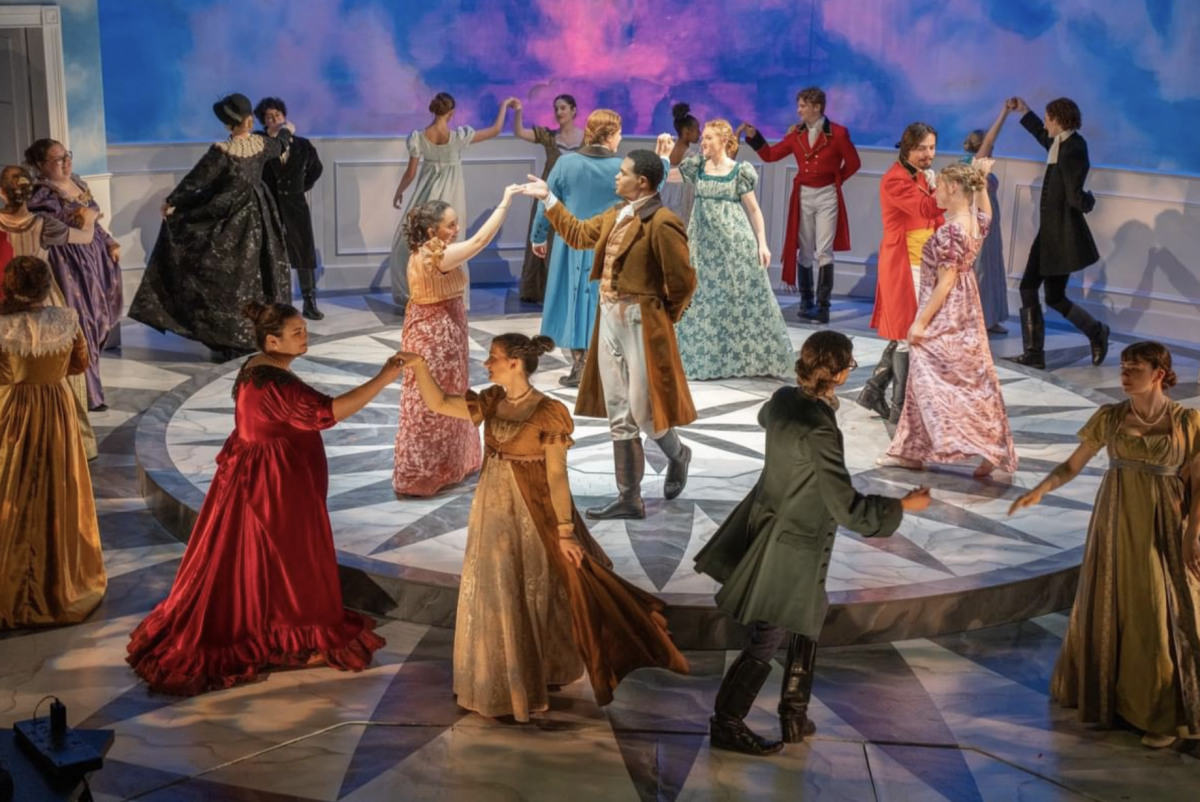This past summer, a movie called "Step Up" was marketed as "the movie that defines a generation." I could only assume, based on the age of the principle actors, that the generation allegedly being defined is our own — people aged 18-25. This scares the hell out of me. I am not sure whether or not this was a quote from an actual critic, or whether it was just dreamt up by an overzealous publicist. Either way, the notion that a professional film critic or professional media man could actually believe that "Step Up" — a lame update of "West Side Story" with lots of salsa dancing — is the movie that defines our generation puts the fear of God into me.
Can a movie define a generation? Absolutely. When you think about what your parents were doing from the late '60s through early '70s, the visions are hazy, a kind of pot-clouded pastiche of scenes from "Easy Rider," "The Graduate" and "The Deer Hunter."
When you think about your disaffected Gen-X siblings, it is always through the spectrum of movies like "Good Will Hunting," "Reality Bites" and "Rounders." Every guy between the ages of 30 and 35 has dated Winona Ryder — not the actual girl, but her essence. The essence is what remains. The brilliant, beautiful, pixie-haired, self-destructive brunette — if we're to believe the movies, this is the only kind of girl you could date during the mid '90s.
And the great thing is, everyone who lived through these eras just seems to have incorporated it into his or her own existence. The events might not be the same, but the sentiment is. The movies become a surrogate reality. No, no it was you, Dad, not Dustin Hoffman, who curled up into the fetal position at the bottom of a pool. Yeah, bro, you're the one who told your shrink you were going to California because you had to "see about a girl." Matt? Matt who?
Where are our movies? What is going to define Generation ADD? Is it going to be "Step Up"? I'm not sure, but I will go out on a limb and say that in 30 years we won't be speaking about "Step Up" in the hushed, reverential tones usually reserved for "Mean Streets" or "Swingers." That's just a hunch — maybe I'm behind the curb on the whole dance-based-cinema oeuvre.
The best movies about being young to have been released in the last four or five years — "Almost Famous," "Friday Night Lights" — are both period films. We can identify with Will Miller and the men of Permian High School all we want to, but they are figures in the not-too-distant past. Their hopes, dreams and fears all ring true, but something is missing. Where are the movies that focus on the uncertainty of being young, post-9/11?
Sept. 11, 2001 is the dividing line. The cliché is that it "changed the way we view the world," but for Generation ADD, it provided the only world-view we've ever had. I don't know about you, but when I was a little kid, I wasn't paying attention to the Washington Post editorial page, or perusing old issues of The Economist. I didn't have a world-view before 9/11. Now I do. It's one of unease and restlessness — not fear exactly, but anticipation. Part of this is that I'm from a city where people legitimately fear planes flying into buildings, but I get the sense everyone shares some of these same emotions, whether or not they want to admit it. When you're young and being bombarded by images of war and destruction, fearing attacks from people you don't know and can't reason with, while simultaneously strung out on Ritalin, the soul-sucking scope of the Internet and the fact that nobody dates anymore — yes, it's possible to be a bit wary. "Shortbus" was right — it's like the '60s, but with less hope. Where is the movie that taps into that sentiment?
The obvious answer would be "Garden State," except for the fact that, upon further review, it really is not a very good movie at all. This may result in the consternation of the legions of Zach Braff fans in our age bracket, but it is the truth. It has only been two years, and already the movie seems hopelessly dated — a confused, overly stylized little movie that doesn't really show us anything, except how a supremely unlikable guy can get the girl. The specter of Sept. 11 hangs over the movie, from the north Jersey setting, to Braff's general sense of uneasiness and malaise, but these feelings are never really addressed.
The fact that there have been no relevant cinematic response to 9/11, Afghanistan or Iraq shows just how confused Hollywood is. Earlier this year, we had "World Trade Center," which might as well have been a theme park version of 9/11. Compared with the austere and moving "25th Hour," it played like terrorism for people in the fly-over states, something packaged to help people with no tangible connection to 9/11 feel something — anything — about what happened on that day.
"The Deer Hunter" was released in 1978, roughly three years after combat in Vietnam ended. We're now five years out from 9/11 and Afghanistan and nearly four years removed from Iraq, and we've only had one movie that explicitly deals with the first topic, and no movie that deals with the last two events. How is this possible? These are the three most important events of any of our lives. Yet, the prevailing wisdom is that we somehow aren't ready for something like "The Deer Hunter" or Hal Ashby's "Coming Home"? Huh?
The three best post-9/11 films — "Insomnia," "Vanilla Sky" and "25th Hour" all dealt with the events implicitly, but we can't give them "movie of our generation" distinction, if only because they aren't about us, per se. The movies speaking to these conditions of isolation and hopelessness, and, ultimately, redemption, have all been centered around older characters, characters who experienced Vietnam and the Cold War and are now just trying to deal with this new twist on an old favorite. They will not become us. We will not become them. There is no way for them to transcend celluloid and become sort of important sort of our shared identity.
Earlier, I mentioned a movie called "Shortbus" and, if it ever gets a proper release, it could be what we have all been waiting for. This seems highly unlikely, seeing as how most of the film features characters performing the kind of graphic (and, allegedly, un-simulated) sex acts that usually don't make their way off the laptop screen. It is also, by turns, funny, cathartic and joyously unrefined. Charting the courses of a host of singles in New York City in the months following 9/11, the film is John Cameron Mitchell's follow-up to "Hedwig and the Angry Itch," and if there's any justice in the world, it will attract the same kind of cult following. This could be our answer to Hal Ashby's Vietnam-era "Shampoo." Like Ashby's film, "Shortbus" is funny, sexy and heartbreaking. It may not be "The Deer Hunter," "Mean Streets" or "Less Than Zero" but it's a start — at the very least, it is the first movie I've seen that totally understands and empathizes with being young in the 21st century. And, more than anything else, it gives me hope that maybe, just maybe, our movie will start trickling in. We've earned a movie like this. It's our time now.







